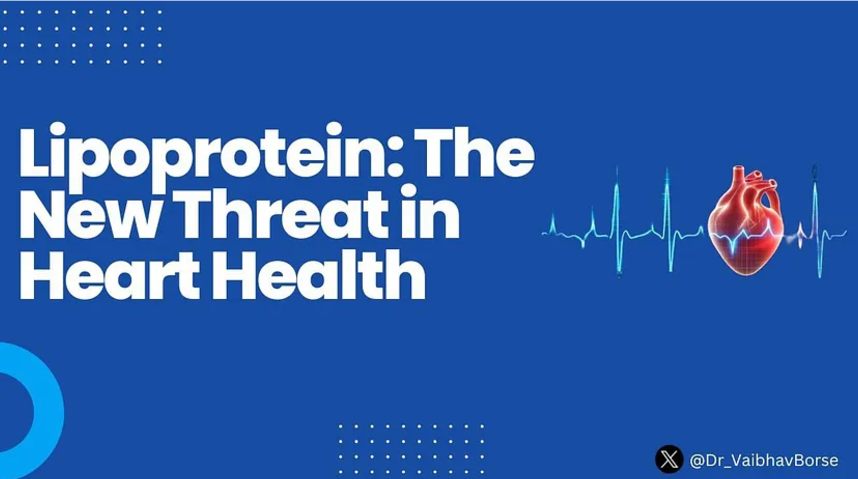Lipoprotein — The New Devil in Heart Health
In recent years, medical research has increasingly focused on lipoprotein, often considered a rising concern in heart health. While high cholesterol has been widely recognized as a major risk factor for cardiovascular disease, lipoprotein — or Lp — may pose an even greater threat. Its unique structure and behavior make Lp an important yet often overlooked factor in heart disease, capturing the attention of scientists and healthcare professionals.
Understanding Lipoprotein:
Lipoprotein is a type of protein, a particle that transports fats, such as cholesterol, through the bloodstream. Structurally similar to low-density lipoprotein (LDL), known as “bad cholesterol,” Lp has an additional protein called apolipoprotein, making it more adhesive and prone to accumulating in blood vessels. This stickiness increases the risk of blockages, which can lead to heart attacks. or strokes.
The Hidden Dangers of Lipoprotein One concerning aspect of lipoproteinis that it raises cardiovascular risk even in individuals with normal or low LDL cholesterol levels.
Elevated Lp levels are primarily genetic, meaning lifestyle changes like diet and exercise have minimal impact on lowering it. Studies indicate that people with high Lp levels face a two- to fourfold increase in the risk of heart disease or stroke compared to those with lower levels.
Moreover, lipoprotein(a) is particularly worrisome because it is often asymptomatic. People with elevated Lp may feel healthy, without signs of high cholesterol or blood pressure, making it difficult to detect until a cardiovascular event, such as a heart attack, occurs.
Challenges in Testing and Treatment Despite its significant role in heart health, Lptesting is less common than other cholesterol tests. Many standard blood panels do not measure lipoprotein, and doctors typically recommend testing only if there is a strong family history of cardiovascular disease or early heart attacks. This limited testing means that many people remain unaware of their elevated Lp levels and associated risks.
Unfortunately, options to reduce Lp levels are limited. While statins effectively lower LDL cholesterol, they have minimal impact on Lp Researchers are exploring alternatives, including PCSK9 inhibitors and other therapies, but these options are not yet widely approved or available for specifically targeting Lp.

Raising Awareness for Prevention Given the risks associated with high lipoprotein levels, raising awareness is essential. If you have a family history of heart disease, it may be worthwhile to discuss Lp(a) testing with your healthcare provider. Although lifestyle changes may not directly lower Lp, maintaining a heart-healthy lifestyle can still reduce overall cardiovascular risk.
Conclusion: Lipoprotein is emerging as a key risk factor in cardiovascular health. New treatments may offer patients more control over this hidden risk as research progresses. Until then, understanding and testing for lipoprotein may be crucial in managing the silent threat of cardiovascular disease.
